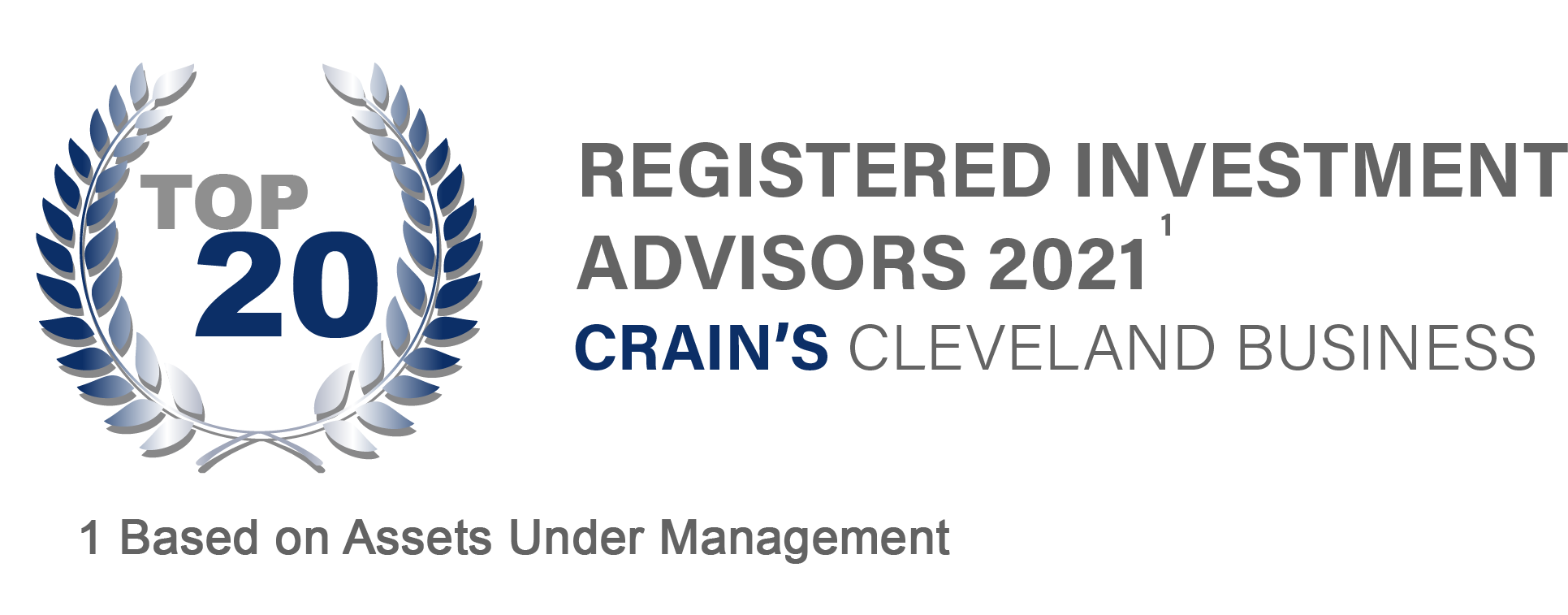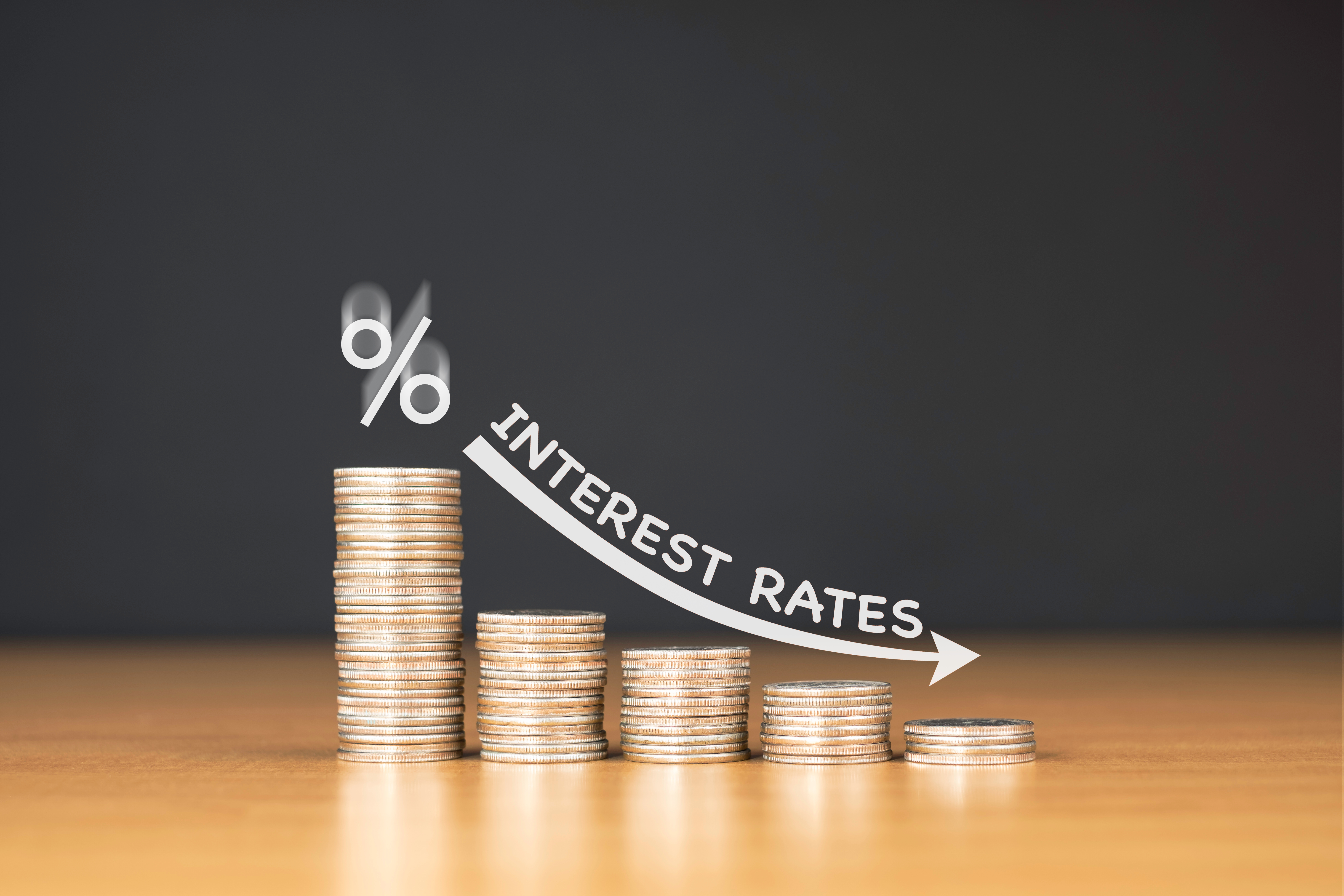Posted By Lineweaver Financial Group
August 17, 2023
Category: General, Lineweaver Financial Group
Team members of Lineweaver Financial Group and their families headed out to a Lake County Captains Game to celebrate Christmas in July and posed with Santa during a Santa Claus costume
Posted By Lineweaver Financial Group
July 27, 2023
Category: General, Economy, Recession, Sales, Markets
When we think of economic indicators, our minds typically go to the state of the housing market, inflation or unemployment rates. Nevertheless, as of late, there have been some surprising economic drivers originating from unexpected sources.
To understand this sensation, look no further than Taylor Swift’s “Eras” tour and the “Barbie” movie. The blowout success of Swift’s tour combined with the record-setting box office success of the “Barbie” movie is showing up in microeconomic aggregates.
The Federal Reserve’s historic rate hikes haven’t brought on a recession yet. Right now, we’re sitting in what’s known as a “Goldilocks economy,” where it’s not too hot and not too cold. Currently, it looks like consumers are prioritizing experiences and entertainment over buying things.
That’s evident when looking at Swift’s tour, which is estimated to generate $4.6 billion in consumer spending in the United States alone1. Fans of Swift are spending money on hotel rooms, merchandise and dining out at restaurants. Some fans are dolling out money for custom outfits, manicures and hairstyles. Businesses are also creating special Swift-themed items for fans to buy.
Fans are even visiting local museums, which led to The Country Music Hall of Fame having the best month in its 65-year history. The museum sold 114,000 tickets the month Swift had her Nashville
Posted By Lineweaver Financial Group
July 26, 2023
Category: General, IRS, Inheritance, Trust, Estate Planning
In a major shift, a new IRS ruling has tightened the regulations surrounding irrevocable trusts and the step-up basis.
In the past, families have been utilizing irrevocable trusts to protect their assets from spend-down to still qualify for benefits like Medicaid and VA Aid. Also during this time, it was not clear if assets passing to beneficiaries through an irrevocable trust would receive a step-up in basis, which eliminated any capital gains taxes that would otherwise be owed.
Historically, assets that individuals sold or transferred during their lifetime have been taxed as capital gains, based on the appreciation in value that occurred over time. The capital gains owed are predominantly calculated by comparing the asset's value at the time of purchase with its value at the time of transfer.
An exception to the obligation of capital gains taxes comes when the owner of the assets dies, and the assets pass to their beneficiaries. The beneficiaries receive a step-up in basis, therefore they inherit the assets as if it had been purchased at the current fair market value instead of the value of the assets at the original time of purchase. This eliminates any capital gains, and no taxes become due.
The new IRS ruling has tightened the regulations surrounding irrevocable trusts and the step-up in basis. According to the updated guidelines, assets held within certain irrevocable trusts will no longer receive the benefit of a step-up in basis upon the grantor's
Posted By Lineweaver Financial Group
April 20, 2023
Category: General
We are humbled and excited to share that Founder and President of Lineweaver Financial Group, Inc., Jim Lineweaver, CFP®, AIF®, was recently featured in the Top 100 in Finance Magazine, entering him into a class of some of the most accomplished and esteemed professionals in the financial industry.
While this is a great milestone, we know that there are really two reasons for it: a great staff and client trust. Our talented staff works hard and goes the extra mile for clients, and in turn, clients trust us, use us as a valued sounding board, and introduce us to their families and friends. To us, there is no higher recognition.
We also believe in personal service. We know how frustrated people are with phone trees and digital assistants where they have to answer questions and are often transferred and re-routed. We live in a fast-paced world that requires cutting-edge technology and the latest market analysis to make smart, informed decisions for all our clients. But, when it comes to service, we believe in a personal touch. You’ll always speak with a person, and we pride ourselves on getting you answers to your questions in 24 hours or less.
For 30 years, our team of qualified, experienced, and credentialed professionals has provided our private and corporate clients with a plethora of options for their financial needs. Our success lies in our continued commitment to providing clients with sound advice, world-class customer service, and accessible resou
Posted By Lineweaver Financial Group
December 16, 2022
Category: General
In a year with down markets, constant volatility and rising interest rates, investing in CDs or bonds could prove an efficient way to get your money working harder for you. They may have a smaller return compared to historic returns from the S & P 500, but the reduced risk could be an improvement on a negative return or no return at all.
Currently, there are CDs that are paying around the 4.5% range, and bonds that may pay up to 5%. And the Fed is continuing to raise rates.
CDs are usually considered fixed instruments, so rising rates won’t affect those that you hold now. However, by staggering your purchases and building a CD ladder, which will let us keep layering in new CDs at increasing rates, you may benefit from rising interest rates.
When considering a CD purchase, one important consideration is the term. Different interest rates will be offered for different durations. CDs also have the advantage of being FDIC-insured up to $250,000.
Another option you have to help your portfolio through market volatility is purchasing bonds. While they don’t have the insurance CDs have, they may pay a slightly better return to help compensate you for some additional risk.
There are a variety of bonds like corporate bonds, municipal bonds and even United State Treasuries. With bonds, you should consider the duration, quality and tax status. Different maturities will have different outcomes.
For example, one advantage of municipal bonds is the tax st
Posted By Lineweaver Financial Group
August 05, 2021
Category: General, Finance, Educational, Commentary
Active management is not about timing the market – it is about smart investing, diversification, and taking advantage of macro trends in the marketplace. Remember, time in the market always beats timing the market.
Keeping your portfolio tilted to any one asset class year after year makes it difficult for you to capitalize on emerging trends and dynamic markets.
One important idea behind active management is the idea of active rebalancing. For example, if your financial goals rely on a mix of 60% stocks and 40% bonds, over time, this balance can change as the markets fluctuate. Rebalancing is regularly resetting your portfolio to target allocations. While it’s important to rebalance at regular intervals, it’s also important to rebalance at times like these when market volatility is extreme. Not only does this provide some much-needed stability in your portfolio, but it also allows you to take advantage of opportunities as they arise. It’s also important from a tax standpoint. Some firms rebalance non-IRA accounts with no regard for the tax ramifications.
Even in challenging market conditions, there are always opportunities. For example, as reopening has gotten underway across the nation, we’re seeing a rotation away from Tech and into Value. Cyclical sectors like energy, financial, and industrials are leading the markets. Overweighting certain segments can help give your portfolio a competitive edge and set
Posted By Lineweaver Financial Group
July 22, 2021
Category: General, Finance, Educational, Commentary
Diversification should be an important part of everyone’s strategy when it comes to investing, but it can be easy to either over or under diversify. Many people think they’re diversified, but when you dig deeper on any given portfolio, we find that’s often not the case.
You want to choose a variety of assets – stocks, bonds, cash and others – but you also want to choose ones whose returns haven’t all historically moved in the same direction, and, ideally, assets whose returns typically move in opposite directions to help your portfolio hold up better in down markets.
Another important aspect of building a well-diversified portfolio is that you try to stay diversified within each type of investment. It’s also smart to diversify across stock holdings by market capitalization (including small, medium, and large caps), sector, and geography.
Something else to consider is stock overlap or duplication between funds. Many people select what they think are very different funds, when in fact they may not be. For example, if you hold several funds, they may be diversified on their own. But if you were dig a bit deeper on them of these, you might notice that many of the top holdings of the different funds are the same, meaning that you’re not nearly as diversified as you had though.
Another key issue to maintain diversification is rebalancin
Posted By Lineweaver Financial Group
July 08, 2021
Category: General, Finance, Newsletter, Educational, Commentary
What are superfoods?
Currently, there is no set scientific definition for what counts as a superfood trusted source. Generally speaking, the term describes foods rich in nutrients and known to offer significant health benefits.
Superfood products are ubiquitous in the wellness world. For example, typing superfood into a well-known e-commerce search engine offers page after page of products branded as superfoods, including coffee creamers, green tea powders, dried fruits, and supplements, some of which are prohibitively expensive.
Many health experts are wary of the term superfood and for good reason. There is no set definition of the word and no regulations surrounding the use of the term on packaging labels.
Because of this, there is no guarantee that a product with the superfood label offers any special health benefits or contains certain nutrients.
The Bottom Line
Even though there is no set definition of a superfood, there is no denying the health benefits of some foods labeled as superfoods, such as berries, citrus fruits, cruciferous vegetables, garlic, and green tea.
While incorporating foods that are considered superfoods into the diet is likely to benefit overall health, it’s important to focus more on the overall quality of the diet rather than on specific foods.
Consuming a nutritious, balanced diet that is especially rich in vegetables and fruits, no matter if they carry the superfood label or not, is one of the best ways to promote health and redu
Posted By Lineweaver Financial Group
July 07, 2021
Category: General, Finance, Newsletter, Educational, Commentary
The Fed has now made a meaningful upgrade to its inflation outlook by embracing a more pronounced overshoot of its 2% target. We view this upgrade as the Fed catching up with the restart dynamics. While the upgrade largely reflects the incoming data since the last meeting, there is a notable change: The Fed now sees the ongoing inflation surge as contributing to achieving its objective as opposed to focusing on its transitory nature.
The Fed surprised markets by embracing higher inflation and heralding a lift-off from zero rates in 2023, rather than 2024. We think this could add to its new framework's credibility as long as last week's fall in inflation expectations does not persist.
01 FED'S OUTLOOK SHIFT
Fed officials embraced higher 2021 inflation as contributing to their medium-term policy objective, opening the door to a 2023 lift-off.
02 CONSISTENT WITH NEW FRAMEWORK
We see this shift as consistent with the Fed's new framework, implying a much more muted response to inflation and supporting risk assets.
03 DATA WATCH
Global purchasing managers' index (PMI) and other sentiment data this week will help investors gauge the status of the economic restart.
THE BOTTOM LINE
Our bottom line: We believe the Fed's new outlook will not translate into significantly higher policy rates any time soon. This, combined with the powerful restart, underpins our pro-risk stance. Large cash balances held by investors and no obvious signs of financial vulnera
Posted By Lineweaver Financial Group
July 07, 2021
Category: General, Finance, Newsletter, Educational, Commentary
On Tuesday, June 15th, Madison Yuzwa, the granddaughter of Lineweaver Financial client Ann Yuzwa (both pictured) was crowned Miss Ohio's Outstanding Teen at the Renaissance Theater in Mansfield, Ohio. Madison also won the talent segment of the competition with her high energy, power tumbling routine. She has been dreaming and working toward this experience since the age of 9 when she took the stage as a Miss Ohio Princess. Madison will move on to compete nationally representing the state of Ohio at Miss America's Outstanding Teen July 28-30th in Universal, Orlando, Florida.
Her social initiative includes promoting confidence in youth and teens through her platform; F.I.T. to be Confident. Using specific guidelines set by the American Heart Association, Madison incorporates exercise, nutrition, and self-acceptance to help empower young people's confidence.
Madison is a recent Summa Cum Laude graduate of North Royalton High School and resident of Broadview Heights. She will be attending The Ohio State University in the fall majoring in Pharmacy through the Early Assurance to Doctorate program. You can also look for Madison cheering on the Buckeyes this coming football season as a rostered varsity
Posted By Lineweaver Financial Group
June 29, 2021
Category: General, Finance, Educational, Commentary
The country is opening again after the severe disruptions we saw over the last year. But, the stimulus of the past year, coupled with the growing economy and some of the shortages we have experienced are causing rising prices. In fact, the labor department is reporting the fastest pace of inflation since 2008. So, what is inflation, and how you can help protect your portfolio?
First, let’s go over the differences between reflation and inflation. Reflation is more akin to what we are seeing now –price increases due to the reopening and growing economy, as the economy works its way back to full employment. Inflation is generally increasing prices in a more stable situation – when an economy is at full capacity, and unemployment is generally low.
To most of us, higher prices affect us negatively, regardless of the root cause. Shopkick, a retail marketing app, surveyed 19,000 consumers to see what their experience with inflation was. Of those, 86% have noticed increased prices, and 83% plan to tighten their belts because of it.
Inflation is a problem because it eats at the value of your retirement savings. Average inflation is about 3.23% according to tradingeconomics.com. So, even in optimal economic conditions, you’re losing 3% or more of your savings most years. But there are some strategies you can use to help protect yourself, your family, and your hard-earned money.
First, there are certain asset cl
Posted By Lineweaver Financial Group
June 09, 2021
Category: General, News, Awards, Crain's, Investment. Advisers
We are humbled and excited to share that we have been ranked in the top 20 of Crain’s Cleveland’s annual list of Registered Investment Advisors based on assets under management. We were especially excited to move up on the list, after ranking in the top 25 in 2019 and 2020.
While this is a great milestone and accomplishment for us, we know that there are really two reasons for it: a great staff, and client trust. Our staff work hard and go the extra mile for clients, and in turn clients trust us, and use us as a valued sounding board, as well as introduce us to their family and friends. To us, there is no higher recognition.
We also believe in personal service. We know how frustrated people are with phone trees and digital assistants where they have to answer questions, and are often transferred and re-routed. We live in a fast-paced world that requires cutting edge technology and the latest market analysis to make smart, informed decisions for all our clients. But, when it comes to service, we believe in a personal touch. You’ll always speak with a person, and we pride ourselves on getting you answers to your questions in 24 hours or less.
For nearly 30 years our team of qualified, experienced, and credentialed professionals has provided our private and corporate clients with a plethora of options for their financial needs. Our success lies with our continued commitment to providing clients with sound advice, world class customer service, and accessib
Posted By Lineweaver Financial Group
April 26, 2021
Category: General, Finance, Educational, Commentary
When we think about the roaring 20s, nearly a hundred years ago, we all think of a decade of growth and celebration! And there were really 2 reasons for that: The end of World War One and the end of the Spanish Flu Pandemic. While we don’t have the end of a major war, we are starting to see the end of the pandemic on the horizon and getting closer to herd immunity. But is that enough to kick off the roaring 20s for us again?
First, let’s consider this year so far. We had a solid first quarter: the S&P was up 6.2%, the Dow was up 6.8%, and the US lead the world according to the MSCI. Even the Russell 2000 was up 13% in a sign that small caps are recovering. The driver of much of this growth is the growing vaccine numbers- on April 21st, President Biden announced that over 200 million people have received at least one dose of a Covid vaccine.
With herd immunity on the horizon, and the likely lifting of restrictions this spring or summer, it’s no surprise to imagine that a lot of people will be traveling, making major purchases, and generally heading out and celebrating.
There does appear to be significant pent-up demand – certainly enough to return to normal, and maybe then some besides. The wherewithal to spend is certainly there. As of February, the savings rate in the US was about 13%- double the historical average! So, consumers do seem coiled for recovery, which would affect travel, leisure, housing, and many other sectors of the economy. P
Posted By Lineweaver Financial Group
April 06, 2021
Category: General, Economy, Fraud, Educational
In recent months, criminal organizations at both the local and international level have been using the identities of U.S. citizens to open accounts and file fraudulent claims for unemployment benefits, exploiting the unprecedented expansion of these benefits provided in response to economic disruption caused by the COVID-19 pandemic. There are many ways that they are doing this, and the schemes range from targeting Medicare, social media, robocalls, and unemployment insurance.
While not all schemes revolve around some form of identity theft, many do. According to Experian, one of the three major credit reporting agencies, here are some telltale signs of identity theft:
• You no longer get your household bills in the mail.
• You’ve been turned down for a loan or credit card.
• You’re being billed for items you didn’t purchase.
• Your financial accounts show charges you don’t recognize.
• Your tax return was rejected.
• Small test charges appear on your credit card statement.
• Your creditors alert you to suspicious activity.
It’s important to keep an eye out and be aware of anything out of the ordinary. There are also steps you can take to protect yourself such as password protecting your devices, never giving out information ove
Posted By Lineweaver Financial Group
April 06, 2021
Category: General, Health, Educational
Although evidence is slowly mounting, we have a great deal to learn about the relationship between inflammation and anxiety.
Anxiety disorders are common. According to the World Health Organization (WHO), in 2015, an estimated 3.6% of the global population had an anxiety disorder, which is around 264 million people.
What is Inflammation?
Inflammation is a protective response that helps the body rid itself of the offending stimuli and protect the body. However, if inflammation persists, it can damage the cells and tissues it is designed to protect.
Linking Inflammation and Anxiety
Although there is now good evidence of links between inflammation and depression, less research has examined the relationship between inflammation and anxiety.
Steadily, scientists are building up a body of evidence.
Anxiety disorders are characterized by mental distress. However, they may also be associated with an increased risk of coronary heart disease, atherosclerosis, and metabolic disorders.
Because these conditions involve low grade systemic inflammation and because depression often comes hand in hand with anxiety, some scientists are asking whether inflammation might therefore play a part in anxiety disorders.
The Take-Home
Although the evidence of a link between inflammation and mental health is becoming stronger, scientists have a long path to traverse before they fully understand the importance of this relationship.
The immune system is an incredibly complicated topic, and menta
Posted By Lineweaver Financial Group
April 06, 2021
Category: General, Finance, Educational, Commentary
Vaccine-led Restart
The new nominal theme – which flags a more muted response in nominal government bond yields to rising inflation than in the past – has played out since last year. Inflation-adjusted yields, or real yields, have fallen further into negative territory as a result. Additional fiscal spending could turbocharge a vaccine-led economic restart later this year – one that we believe may exceed market expectations.
Activity in many services sectors is already compressed with less room to decline further. Businesses have also adapted to an environment of social distancing, allowing operations to continue. Consensus expectations of the size of the shock have been revised down materially, particularly for the euro area. Vaccine rollouts are likely to stoke a sharper-than-anticipated rebound.
A Different Shock
We see pent-up demand in contact-intense services rebounding sharply once restrictions lift in the U.S. and euro area – as seen in China, and supported by the accumulation in personal savings.
U.S. consumers have built up a savings buffer equivalent to more than 12% of annual consumer spending over the past year. Not only is the policy response this time far more overwhelming, but a large part of economic activity will restart on its own once the pandemic is under control, in our view. This is a key difference with the Global Financial Crisis (GFC). The objective of the current policy response has been different: it is not to stimulate
Posted By Lineweaver Financial Group
March 29, 2021
Category: General, Economy, Interest Rates, Educational
In the last year, low interest rates have become the norm as the Fed has used them to combat the economic effects of the Coronavirus. This can make it challenging for investments like CDs, your savings accounts – even high yield accounts – to make enough to outpace inflation. That means that your money is essentially becoming less valuable over time, which gives you less buying power. Let’s talk about some strategies you can use in a low interest rate environment.
Bonds are really the classic vehicle for generating income. On the downside, they will fluctuate with interest rate moves and have default risk. But they can generate income and serve as a ballast in a portfolio when equity values are volatile. Individual bonds may be difficult to buy, but bond mutual funds and ETFs can offer diversity and make the process easier and more cost efficient.
One of the things that you can do is to create a bond ladder – so you’re investing in bonds that mature at different times or over a certain period. And, as these mature, you reinvest them in a new bond. That way you are constantly earning a return higher than what you may find at most banks and as interest rates change, you are taking advantage of the latest and hopefully highest rates available.
Another option is Treasury Inflation-Protected Securities, often known as
Posted By Lineweaver Financial Group
March 13, 2021
Category: General, Economy, Tax Planning
As we get into tax season, filing for 2020 is fundamentally different from most tax years, especially in light of Covid and the stimulus packages passed last year. We thought it would be helpful to share a few general tax tips to keep in mind as you’re working with your tax advisor.
The first thing to consider is the tax stimulus credits. The EIP (Economic Impact Payment, aka stimulus check) is actually a 2020 tax credit that was advanced to taxpayers as part of the Cares Act. Certain qualifications, such as income levels and dependency status, impact the amount the taxpayer may receive. The first round allowed for a maximum of $1200 per qualifying adult and $500 per qualifying dependent child (age 16 and under). The second round allowed for $600 per adult and $600 for dependents 16 and under.
Another consideration during 2020 tax preparation is the group of taxpayers caught in in-between – taxpayers age 17 and over, usually high school and college children still claimed as dependents by their parent. When filing 2020 tax returns, parents and their dependents need to consider whether it makes sense to still claim the dependent child. Parents may phase out of education tax credits, the child may have graduated during the tax year but still eligible to be claimed, or perhaps 529 plan money was used to pay college expenses. In those cases it may be better for the child to claim themselves to take advantage of the education credits and quali
Posted By Lineweaver Financial Group
February 18, 2021
Category: General
Let’s talk about blockchain, which is the concept behind popular Cryptocurrencies like Bitcoin, Ethereum, Cardano, and Litecoin. Blockchain seems complicated, but its core concept is really pretty simple – it’s a type of database. To be able to understand blockchain, it helps to first understand what a database actually is.
A database is a collection of information that is stored electronically on a computer system. Information or data in databases is typically structured in table format to allow for easier searching and filtering for specific information. A simple example for most people to visualize is a spreadsheet, like what you’d use in Excel. The main difference is that spreadsheets are designed for one or a few people to store and access small amounts of information. By contrast, a database is designed to house huge amounts of information that can be accessed, filtered, and manipulated quickly and easily by any number of users at once. In either case, data is traditionally housed/stored in a centralized location.
This helps us imagine a starting point, but how is blockchain different from a database? After all, a database isn’t a new concept, and blockchain is a new technology. One key difference is the way the data is structured. A blockchain collects information together in groups, also known as blocks, that hold sets of information. Blocks have certain storage capacities and, when filled, are chained onto t
Posted By Lineweaver Financial Group
October 01, 2020
Category: Medicare, Medicare Supplements, Retirement, General
Open enrollment for Medicare and Medicare Supplements is right around the corner. Medicare programs are notoriously challenging to navigate, but it’s a crucial decision that most of us will have to make at some point in our lives.
The question most people start with is one of eligibility. There are two essential parts to Traditional Medicare, Parts A and B. Part A has to do with hospitalization, and you become eligible on the first of the month for your 65th birthday. If you become eligible for Part A, it’s recommended to enroll immediately because there is no premium. This remains true even if you are still working and have health insurance through your job. It will get you into the system, and you’ll start receiving “Medicare & You.”
On the other hand, part B has to do with doctor visits and bills, including medically necessary services or preventive care. It’s recommended that you enroll with the Social Security office about 2-3 months prior to when you’ll be looking to receive the full Medicare enrollment benefits. When it comes to enrolling for Part B, this can be particularly tricky and could cost you. If you are already retired or will retire right at 65, the answer is simple: sign up for Part B at the same time you enroll in Part A. If you are still working, it’s something that you must figure out when the right time is to enroll.
It’s essential to enroll at the right time. If you






















 Virteom
Virteom